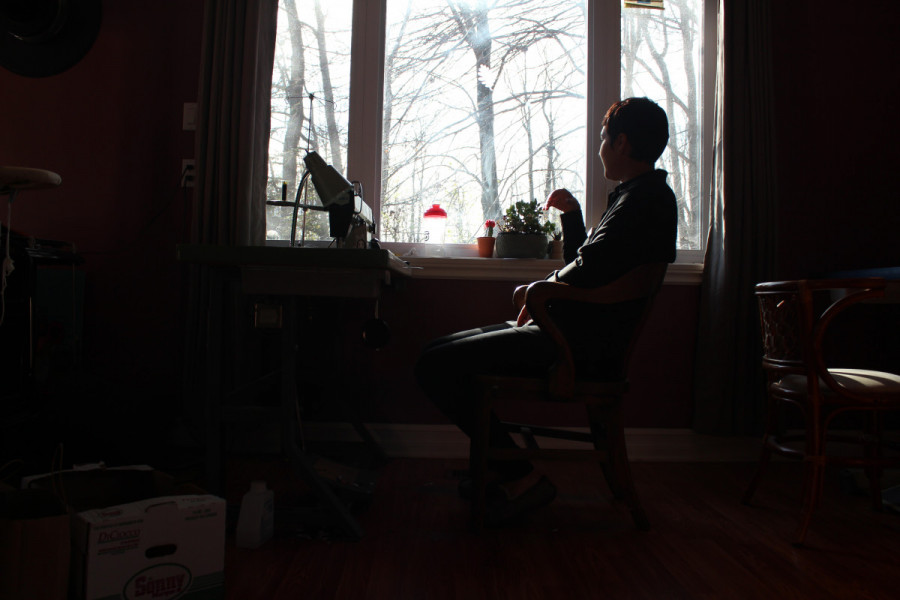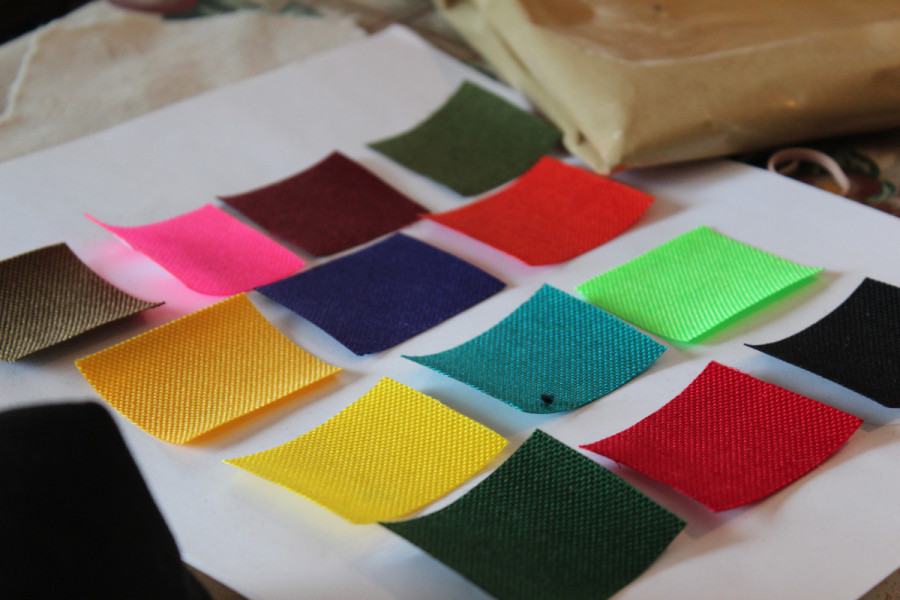It’s In the Bag: Indigenous Business Scales New Heights
When a Pandemic Hobby Becomes Its Own Business
Upon walking into Kel Tech Gear’s studio, rays of light shine through windows on all three walls of the room.
Shelves packed with stacks of textiles are propped up against one wall and towering rolls of fabric lean against them. In one corner sit two sewing machines.
Owner and founder Kelsey Deer started her bag-making business amidst the pandemic from her home in Kahnawá:ke. At the time, she was working in a local clothing shop as a seamstress and was eventually let go as she was not deemed an essential worker.
“I made my first real bag in August 2022,” said Deer. It was the Dog Training Treat Bag. After posting it on her Instagram account, it gained enough visibility to reach Toronto—where a determined individual was insistent on purchasing it for his girlfriend.
“My business was not really planned at that point,” Deer recounted. “It was for fun; I had the summer off—I was just making stuff.” This customer nonetheless encouraged her and ended up being her first sale. Three months later, she had officially launched her business on Instagram.
Via word of mouth, Kel Tech Gear witnessed its followers and clientele gradually flourish. When the business began, 90 per cent of the customers were Kahnawá:ke locals. Since Deer advertised her merchandise on her social networks, it was mainly her personal followers and community members who shopped at her business.
“I got one order, maybe a year ago, from California,” Deer said. The order was for another Dog Training Treat Bag, which is now her best selling model. “Now, almost all my orders come from California.”
As her business grew and her customer base expanded outside her immediate community, Deer was forced outside her comfort zone. She needed to find ways to get merchandise to her new international customers. “I didn’t want to ship anything, because it was daunting,” she explained.
Deer would originally only send the invoice to her customer once the item was shipped. This system was worrisome to her. “What if I send it and they flake on me and they don’t pay the invoice?”

In August 2021, Deer switched from manually managing the orders to upgrading her online business—and it changed her workflow. “It gave me so much free time to put into the business.”
The system change also allowed her to reconsider the pricing and materials of her products, ultimately upgrading the quality of her products. “In February, I shut my website down for three weeks and I ordered a bunch of new [fabrics and webbings].”
“If I’m charging more, I want to have the best,” Deer believes. Her newer models are made of nylon instead of polypropylene. Consequently the cost of fabric has increased–from $9 to $21 per meter—and so has the quality of her products.
Thanks to these upgrades in the price and quality of her products, Deer has been able to pay herself a decent wage of $20 per hour—more than twice her hourly wage at the beginning of Kel Tech Gear. High quality and hand-crafted products are costly, especially for small businesses who don’t have access to the same resources as the big brands in the game.
“For that price, I would’ve paid the same for [brands like] Patagonia or North Face,” said Viviane Pham, a Kel Tech customer. She owns both a duffle bag, a now discontinued product, and the chalk bucket. Pham was introduced to Deer’s company through the bouldering gym Bloc Shop, as the gym had placed a bulk order for her climbing bags.
Wholesale orders help ensure long-term revenue for Deer. Breadhouse Climbing, one of Kel Tech Gear’s first clients, sells customized chalk bags produced by Deer. Co-owner Eli Dannenbaum admitted that his lack of sewing skills forced him to find someone to make the bags.
“We wanted everything made locally, instead of made abroad,” Dannenbaum said. “They are slightly more expensive [than big name brands] but are still worth it, as they’re hand made.” He also loves the variety of colours, their volume, and especially the diverse ways they can be attached to a climbing harness. “They’re just fantastic,” he emphasised.
“I don’t make a lot of money at all,” admitted Deer. Her website celebrated its one-year anniversary this summer. “[The annual revenue] was 17 or 18 [thousand] on the dot.” This amount does not include her sales made at markets, like the one at the Kahnawá:ke powwow or the Indigenous Winter Market, which can generate $400 to $800.
“I’m just so happy that people actually buy my stuff,” said Deer. “I’m able to do this and people support my business.” Kel Tech Gear has grown to be profitable enough for her to live off its revenue. “It’s a dream come true, honestly.”
This article originally appeared in Volume 43, Issue 7, published November 22, 2022.



